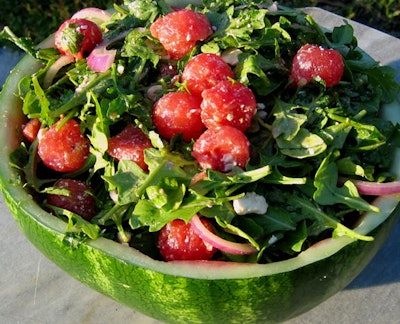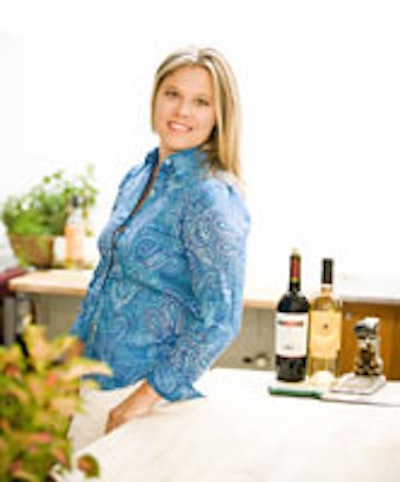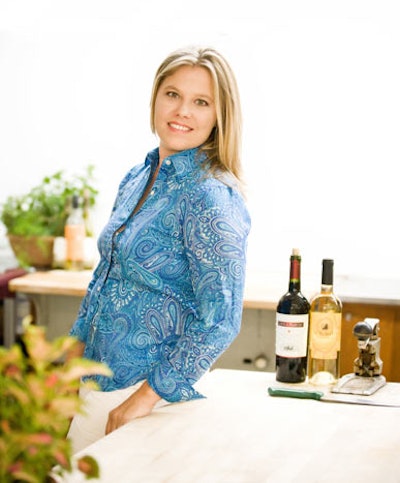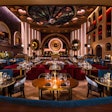Before getting into the food industry, Elizabeth Guerra spent 10 years working with Thomas Lighting as a lighting consultant to electrical engineers and architects. She spent most of her spare time in the kitchen, cooking birthday dinners for friends and colleagues. When she transferred from Ohio to Miami in 1998, she decided to work with food full time, and opened Relish Miami Catering last year.
Though she hasn’t had formal culinary training, Guerra hones her techniques and keeps up with trends by reading food magazines and her collection of more than 300 cookbooks, and by taking one-off cooking classes at Miami-Dade College. “There’s a difference between studying and working,” says Guerra. “If you don’t have the right palate and sensibility about food, it doesn’t matter how much you study under another chef—you’ll be a great technical cook, but not necessarily a great chef.”
While catering a private party, Guerra met her first nonprofit client, St. Philip’s Episcopal Church in Miami. The church’s interest in her work catapulted her into the nonprofit event market: Within a few months, Guerra began getting phone calls from Trinity Episcopal Church, Junior League of Miami, and other organizations.
“We were set up to do an event for about 150 people, and the person we hired backed out one month before,” says Maria Maloof, vice president of development for the Junior League and president of Maria Maloof Events. “I called Elizabeth, and she came in there like gangbusters. All our guests were delighted with what she prepared.”
Carol Berg, past president of St. Catherine’s Guild women’s fellowship at St. Philip’s Church, agrees. “She’s not coming into it as a learn-as-you-go caterer,” Berg says. “She can go in [to an event] and do things just like a traditional caterer with many years of operation under their belt—only she can do it right from the start.” For the fellowship’s women’s luncheon, held in Coral Gables in April, Guerra made pear, arugula, and goat cheese-filled empanadas drizzled with honey, Berg’s favorite dish of the day.
Guerra’s cooking style combines Spanish, Mediterranean, Italian, Cajun, and Cuban flavors. “I want to offer them something that’s more interesting [than a prepackaged menu], fun, and complementary to the overall tone and tenor of the event,” she says.
Her five-year business plan, already on schedule for year one, includes testing the waters of the corporate catering market and doubling her nonprofit business by spring 2010 to average 12 events a year. “One of my big motivating factors for doing events is knowing that I’ve been of service,” she says, “and I don’t know of any greater way to do that than be able to sustain a business while still giving back to the community.”
Correction: Guerra's home state has been corrected from Illinois as originally reported. The explanation of her first client has also been clarified.






















